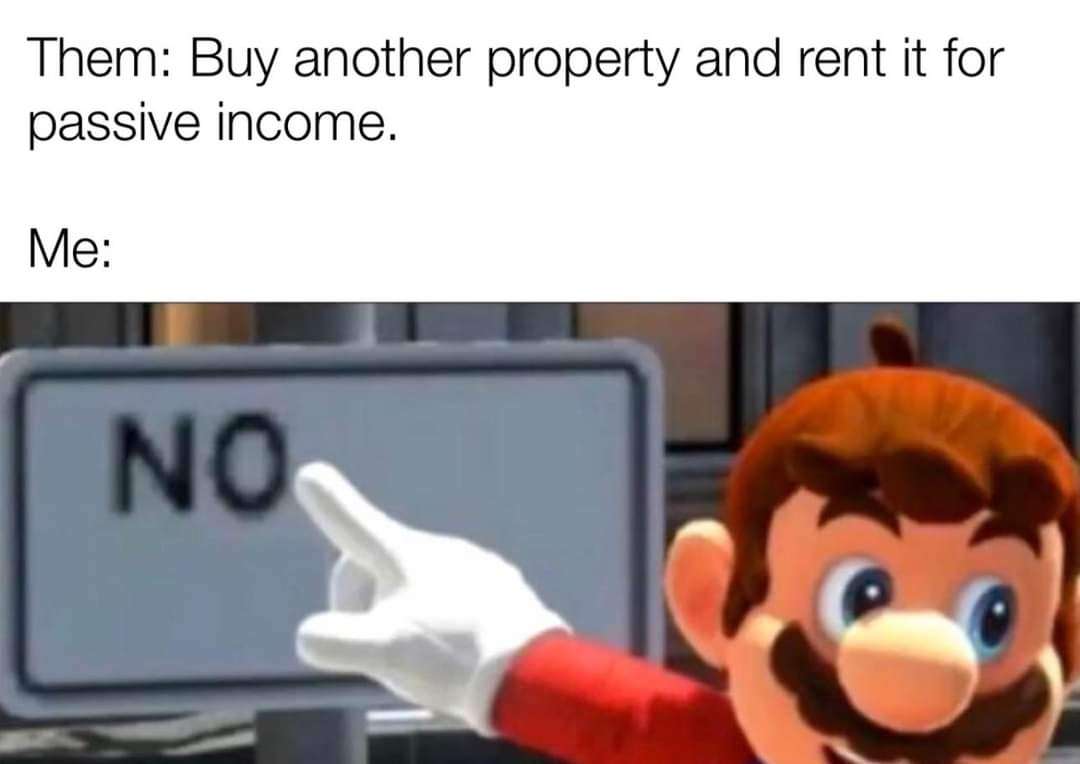this post was submitted on 08 Feb 2024
601 points (99.5% liked)
196
16613 readers
2216 users here now
Be sure to follow the rule before you head out.
Rule: You must post before you leave.
founded 2 years ago
MODERATORS
you are viewing a single comment's thread
view the rest of the comments
view the rest of the comments

I completely agree. In my utopia there'd only be property tax and consumption tax (sales tax). Everything else is tax free.
Another alternative is transaction tax, but that's impossible to implement, even if everything seems to be pointing at governments going in that direction. All governments in Europe are trying to implement complete accountability for transactions, but I can assure you that if they tried to tax it, there'd be no transactions at all. Everything would bypass the concept of money itself and everyone would keep a private ledger.
It's a classic philosophical discussion about holistic (tax the land) vs reductionism (tax the transaction).
I'm not a fan of sales taxes, because they tend to be more of a burden on the poor than the rich. I much prefer a marginal income tax to that.
Personally, I think our philosophy of taxation should be "tax what you take, not what you make".
Because there's finite land on Earth and nobody has created it, you occupying any parcel of it necessarily denies others from its benefit. Hence, a land value tax in proportion to the value of land you have taken from the rest of society.
Similar for finite natural resources. There are finite mineral deposits, finite oil deposits, finite phosphate deposits, etc., and anyone who extracts them takes something from the rest of society. Hence, we ought to have a severance tax in proportion to the value of the resource you have taken from the rest of society.
And also similar for negative externalities. When you pollute a river or the atmosphere or cause any other negative externality, you are forcing those around you to bear some of your costs, that is you are taking value from them to give to yourself. Hence, we ought to have externality taxes (aka "Pigouvian taxes") in proportion to the amount of harm you have caused to society.
Further, I think taxing along this principle leads to the best overall outcomes, not just from an abstract sense of "fairness", but from pragmatic economic outcomes.
Take land value taxes: economically speaking, LVT is just a great tax with great properties that has seen great empirical success.
Or severance taxes: Norway has used them brilliantly to solve the resource curse.
Or Pigouvian taxes: basically all economists agree carbon tax-and-dividend is the single best climate policy.
But yeah, absolutely everything else should be tax-free. The government shouldn't even be tracking your income, much less taxing you on it. Tax the land hoarders and polluters instead.
This will do the opposite of what you want. All of these policies disproportionately cause poor people to remain poor.
It's not intuitive and it sounds great till you realize that unless you tax wealth and income with a progressive rate well into the 90% at the highest levels.
People who are wealthy don't give a single shit about consumption tax. They also don't care about transaction taxes (unless it's progressive). A person with a million dollars doesn't care if milk costs 5 bucks or 6 bucks a gallon... But the person making the minimum wage absolutely cares.
Sales tax is deliberately regressive, taxing the poor more than the wealthy. Why would you have it, rather than income tax?